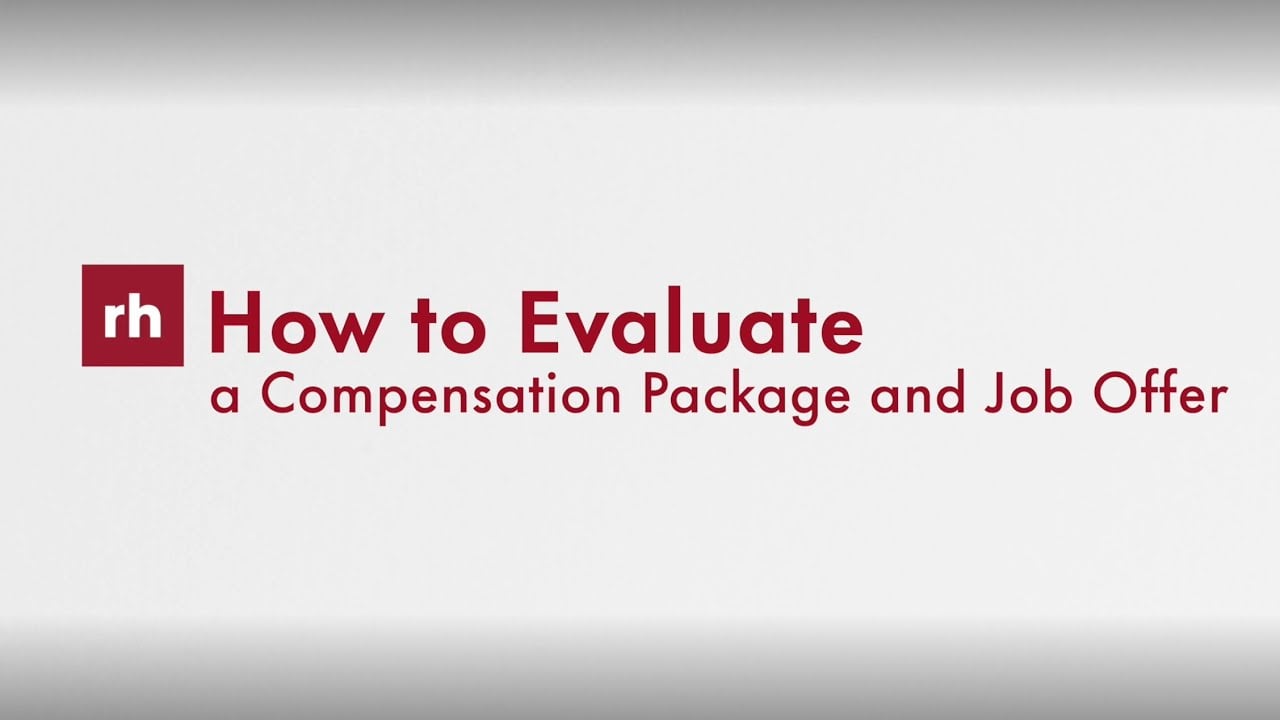There are few things more exciting than receiving a tempting job offer. Congratulations! But before you rush to accept that offer, take time to evaluate the entire compensation package.
What is a compensation package?
It includes more than just salary. It’s everything of value, monetary and non-monetary, that an employer provides in exchange for the work you do — like incentives, benefits and perks.
What can be included in a job offer package varies greatly depending on the company and position, but most leading employers offer some combination of the following elements in a compensation package:
- Salary
- Bonuses and commissions (as applicable)
- Paid time off (holidays and vacation and sick days)
- Medical, dental and vision insurance
- 401(k) or another retirement savings plan
- Childcare, including off-site and on-site options
- Flexible work hours
- Subsidized training or education
But that’s not all. As employers strive to attract top talent in a fiercely competitive hiring market, they’re adding new benefits and perks or updating their existing array of options. The definition of what a compensation package entails changes on a regular basis, so it’s important to be informed as you evaluate the particular job offer package presented to you.
Trends in benefits and perks we’re seeing include:
- Candidates prefer health-related benefits over options such as a leave of absence.
- More firms are offering retirement savings plans, with 85% of survey respondents indicating their employees can choose this benefit, up from 66% just five years ago.
- Flexible work arrangements continue to gain popularity, with more than three-quarters of hiring managers responding to a Robert Half survey saying their organization now offers flexible scheduling — and nearly as many saying they now offer remote work options.
New to remote work? Robert Half has tips to help you succeed. See this post.
Why benefits and perks matter
Benefits and perks, loosely defined as items outside of base salary and bonuses, are important to consider for several reasons. First, they can help offset the costs of necessary services, such as medical insurance, that you might otherwise have to pay for yourself fully — or even be unable to afford. Employees frequently get a better rate by joining a company’s health insurance plan than they would if they purchased policies independently.
Second, they can help you maintain a healthy work-life balance — a top priority for employees who saw the line between their professional and private lives become increasingly blurred during the early 2020s due to working from home full-time as a result of the many sudden changes arising out of the pandemic. Hybrid schedules appeal to people who find that commuting five days a week saps their productivity but don’t want to go back to feeling stuck at home 24/7. Other employees may enjoy the rhythms of office life but would like more autonomy over the hours they work.
Finally, some benefits and perks can help you prepare for the future. Whether it’s subsidized training that could lead to a promotion and higher salary or a 401(k) plan that helps you prepare for eventual retirement, these benefits reward you for your time with the company by helping make your future better and more secure.
How to evaluate a compensation package and job offer
When you have an offer in hand, it’s time to consider the entire package. If the proposed salary is not what you expected, examine the benefits and perks. A top-notch package may make a lower salary more palatable. Or, if the perks aren’t what you were expecting, you may be able to negotiate certain items. Here are some questions to consider when evaluating a potential employer’s proposal:









